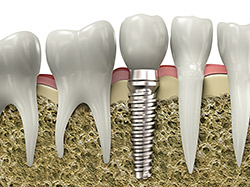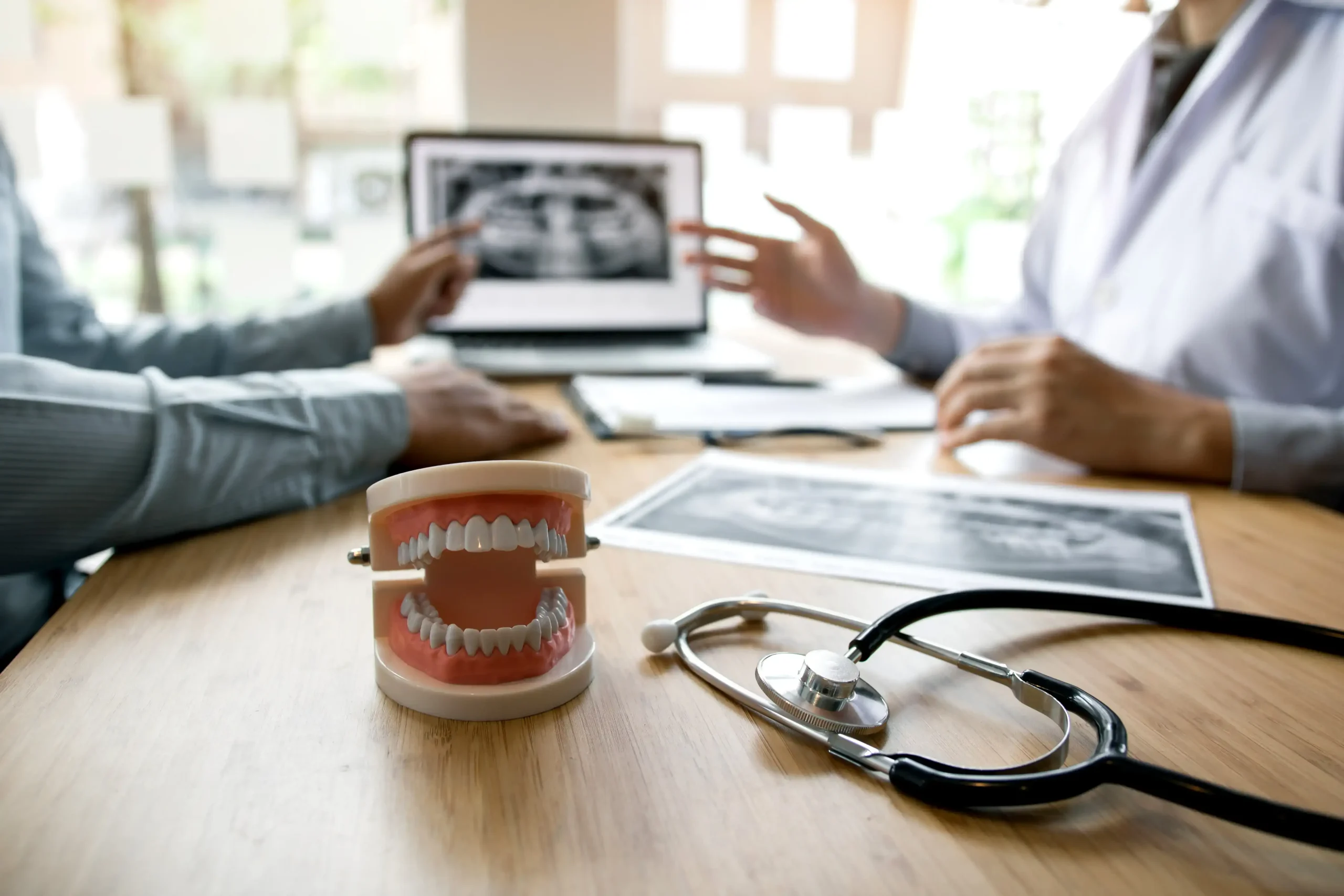Table of Contents
Dental emergencies can be distressing and require immediate attention. At Dorset Dental in Scarborough, we’re equipped to handle a variety of dental emergencies.
This guide will discuss the seven most common types of dental emergencies, how to handle them, potential treatments, and provide examples of each.
1. Toothache
Toothache is a common dental emergency that can be caused by various factors such as tooth decay, gum disease, an abscess, or a chipped or broken tooth. For example, you might experience a toothache if you have a cavity that has reached the nerve of your tooth, causing intense pain.
If you’re experiencing a toothache, it’s crucial to seek emergency dental care immediately. Treatment may include a filling, root canal, or extraction, depending on the cause of the toothache.
2. Chipped or Broken Teeth
Chipped or broken teeth can result from biting down on hard food, a sports injury, or a fall. For instance, you might chip a tooth while eating popcorn and accidentally biting down on an unpopped kernel.
If you have a chipped or broken tooth, avoid eating on that side of your mouth and avoid hot or cold foods and beverages. At our emergency dental clinic, we may repair the tooth with a filling or crown. In severe cases, a root canal or extraction may be necessary.
3. Knocked-Out Tooth
A knocked-out tooth is a serious dental emergency. For example, a tooth might be knocked out during a sports game if a ball or another player hits your face. If your tooth gets knocked out, try to put the tooth back in the socket if possible. If not, store it in a glass of milk or water and get to Dorset Dental immediately. Acting quickly can increase the chances of saving the tooth.
4. Dental Abscess
A dental abscess is a pocket of pus that forms due to a bacterial infection. For instance, if you have severe tooth decay or gum disease, an abscess can form, causing pain and swelling. If you suspect a dental abscess, see an emergency dentist at Dorset Dental immediately.
Treatment may involve draining the abscess and getting rid of the infection with root canal treatment or tooth extraction. Antibiotics may also be prescribed to help fight the infection.
5. Lost Filling or Crown
A lost filling or crown can expose the sensitive part of your tooth, causing pain and sensitivity. This can occur due to decay underneath the filling or crown or due to the wear and tear of the restoration. For example, you might lose a crown while eating sticky food.
If your filling or crown falls out, schedule a dental appointment at Dorset Dental as soon as possible. Your dentist will need to replace the filling or crown to protect your tooth and prevent further damage.
6. Broken Orthodontic Wires
Broken wires from braces can cause discomfort and even injury to the mouth’s soft tissues. For instance, a wire might break or stick out if you eat hard or crunchy food. If a wire breaks or sticks out, try to push it back into a comfortable position using the eraser end of a pencil. If that’s not possible, cover the end with orthodontic wax or a piece of gauze until you can get to the dentist. Your orthodontist will need to repair or replace the broken wire.
7. Severe Tooth Sensitivity
While some tooth sensitivity is common, severe or sudden tooth sensitivity can be a sign of a cracked tooth, gum disease, or tooth abscess. For example, you might experience severe sensitivity when you drink a hot beverage or eat ice cream. If you experience severe tooth sensitivity, especially if it’s accompanied by pain or a fever, it’s important to seek emergency dental care.
Treatment will depend on the cause of the sensitivity but may include a root canal, gum disease treatment, or treatment for a tooth abscess.
Key Takeaways
- Dental emergencies require immediate attention to alleviate pain and prevent further complications.
- The seven most common dental emergencies include toothache, chipped or broken teeth, knocked-out tooth, dental abscess, lost filling or crown, broken orthodontic wires, and severe tooth sensitivity.
- If you’re experiencing a dental emergency, it’s crucial to seek professional help immediately. Dorset Dental in Scarborough is equipped to handle a variety of dental emergencies.
Frequently Asked Questions
Dental emergencies refer to any situation where there is an immediate need for dental treatment or care to alleviate pain, reduce swelling or bleeding, and prevent further damage to the teeth, gums, or mouth.
The most common dental emergencies include painful toothache or sore tooth, chipped or broken tooth, knocked-out or avulsed tooth, loose or dislodged tooth, and soft tissue injuries in the mouth like cuts, lacerations, and bleeding gums.
Yes, it is essential to visit the dentist as soon as possible for emergency dental treatment or dental restoration to prevent the dental problem from worsening or leading to other complications that may affect your oral health and overall well-being.
Depending on the type and severity of the dental emergency, your dentist may be able to put the knocked-out tooth back in its place, use an ice pack or cold compress to reduce swelling, apply dental restoration to fix the tooth, or provide over-the-counter pain relievers and antibiotics to alleviate pain and prevent infection.
If you have a chipped tooth, you should call your dentist or emergency dental office right away to schedule an appointment for emergency dental treatment. In the meantime, rinse your mouth with warm water, use an over-the-counter pain reliever, and apply a cold compress to reduce swelling.
Yes, a loose tooth is considered a dental emergency because it may indicate a serious dental problem that requires immediate attention from a dentist. Your dentist may be able to reinsert the tooth back in its place or provide dental restoration to fix the tooth.
There are over-the-counter pain relievers, cold compresses, and dental floss that can help alleviate pain and reduce swelling for some dental emergencies. However, it is always recommended to see your dentist or emergency dental office for proper diagnosis and treatment of dental problems.
If a tooth gets knocked out, try to reinsert the tooth back in its place without touching or damaging the roots. If that is not possible, keep the tooth in a container of milk or saliva and see your dentist immediately for emergency dental treatment.
You should go to the emergency room for dental problems that involve severe pain and bleeding and may require immediate attention from a medical professional. However, for most dental emergencies, visiting the dentist as soon as possible is the best course of action.
Practicing good oral hygiene habits like brushing and flossing regularly, visiting the dentist for routine check-ups and cleanings, wearing protective gear when playing sports, and avoiding hard and sticky foods can help prevent dental emergencies.
- Regular dental check-ups can help prevent dental emergencies by catching and treating dental issues early.
- Trust Dorset Dental in Scarborough to provide the immediate and professional care you need during a dental emergency.

DONT'T DELAY BOOK TODAY!
The Scarborough Dentist You Can Trust 🦷
Book now to remove all toothaches and give yourself the best smile you’ve ever had!
Latest Posts
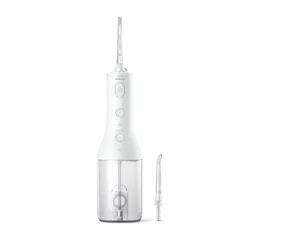
Should You Be Using a Water Flosser? Here’s What You Need to Know
If you’ve been searching for ways to improve your oral hygiene—or if you’ve typed “dentist near me” into Google recently—you may have come across something called a water flosser. At Dorset Dental, your trusted Scarborough dentist, we often get questions about whether water flossers are a good alternative to traditional flossing. For many of our patients, the answer is yes! What Is a Water Flosser? A water flosser (or oral irrigator) is a handheld dental device that uses a targeted stream of water to remove food particles and plaque from between the teeth and below the gumline. It’s especially helpful for people who find string floss uncomfortable or difficult to use. Why Dentists Recommend Water Flossers As a dentist in Scarborough, we recommend water flossers for a variety of reasons: ✅ Gentle on Sensitive GumsIf you have sensitive gums or experience bleeding when flossing, a water flosser provides a gentle, effective solution. ✅ Ideal for Braces and BridgesFor patients with braces, implants, or bridges, flossing can be a challenge. Water flossers make it easier to keep these areas clean and free of plaque. ✅ Easy to UseJust aim the water stream at the gumline and let it flush away debris. It’s fast, mess-free, and convenient. ✅ Clinically ProvenStudies show that water flossers are just as effective—if not more—than string floss in reducing plaque and improving gum health. Is a Water Flosser Right for You? While water flossers are a fantastic tool for many patients, they work best when used in conjunction with regular brushing and routine visits to your dentist. They’re especially useful for: People with gum disease or gingivitis Patients with orthodontic appliances or bridges Anyone who struggles with traditional flossing Not sure if a water flosser fits your dental care routine? Book a consultation with our friendly team at Dorset Dental—your go-to Scarborough dentist. We’ll help you find the best solution for your smile. Looking for a Dentist Near You?We’re here to help! 📍 Visit us at 119 Dorset Road, Scarborough, ON📞 Call us at 416-261-2946 to schedule your appointment Whether you’re looking for a dentist near me or seeking expert dental care in your neighborhood, Dorset Dental is proud to serve the Scarborough community with compassion and care. 0/5 (0 Reviews)
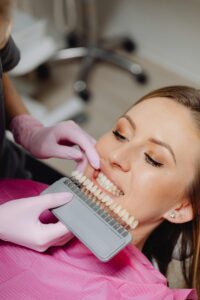
Get Summer-Ready with a Brighter Smile: Professional Teeth Whitening at Dorset Dental
Photo by Photo By: Kaboompics.com: https://www.pexels.com/photo/a-dentist-holding-a-dental-shade-guide-in-front-of-a-patient-6627562/ As the days grow longer and the temperatures rise, summer brings with it a fresh sense of energy, excitement, and social connection. Whether you’re planning a vacation, attending weddings, enjoying family barbecues, or just soaking up the sun around Scarborough, now is the perfect time to refresh your smile with professional teeth whitening at Dorset Dental — your trusted local dentist. Why Whiten Your Teeth? Your smile is often one of the first things people notice about you. Over time, our teeth can become stained or discoloured due to a variety of reasons: Drinking coffee, tea, or red wine Consuming pigmented foods like berries and tomato sauce Smoking or tobacco use Natural aging of enamel Certain medications These factors can dull the natural whiteness of your teeth, making you feel self-conscious — especially when you’re smiling for group photos or meeting new people. The good news is that teeth whitening can effectively reverse many of these effects, leaving your smile several shades brighter in just one visit. The Dorset Dental Difference At Dorset Dental, your Scarborough dentist, we offer safe, professional-grade whitening solutions tailored to your individual needs. Unlike store-bought kits, our treatments are designed to deliver noticeable and lasting results without harming your enamel or irritating your gums. We provide two convenient options: 1. In-Office Whitening Experience dramatic results in just one visit! Our in-office whitening treatment uses advanced dental-grade gel and specialized light activation to break down deep stains and brighten your teeth by several shades — all in under an hour. 2. Take-Home Whitening Kits Prefer to whiten your teeth at your own pace? We also offer custom take-home kits that include professional-grade whitening gel and trays molded specifically to your teeth. You’ll achieve gradual, consistent results over the course of a couple of weeks — all from the comfort of your home. Feel Confident This Summer A bright, healthy smile does more than improve your appearance — it boosts your confidence, helps you feel more approachable, and enhances your overall self-esteem. Whether you’re laughing over lunch on a patio, giving a toast at a summer event, or capturing memories in photos, your smile will be the first thing people remember. If you’re searching for a “dentist near me” who offers expert teeth whitening and compassionate care, look no further than Dorset Dental. More Than Just Whitening We’re not only your go-to for cosmetic dentistry — we’re also here when you need us most. As a trusted emergency dentist in Scarborough, we provide same-day appointments and urgent care for dental emergencies, alongside a full range of general and family dentistry services. We’re proud to be your local dentist offering comprehensive care under one roof. Book Your Appointment Today! Don’t let stained or discoloured teeth hold you back this summer. Let our friendly and experienced team at Dorset Dental help you put your best smile forward. Give us a call at 416-261-2946 or visit us at 119 Dorset Road, Scarborough, ON M1M 2S9 to schedule your teeth whitening consultation today. We’ll make sure you leave our office with a smile that shines just as bright as the summer sun. Dorset Dental – Your Smile, Our Passion.Your trusted Scarborough dentist, conveniently located and ready to serve as your go-to local dentist, cosmetic specialist, and emergency dentist. 0/5 (0 Reviews)
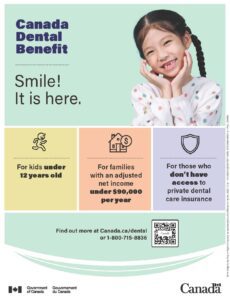
Understanding the Canadian Dental Care Plan: What It Means for You
Published by Dorset Dental, Scarborough – 119 Dorset Road, ON M1M 2S9 The Canadian government has recently launched the Canadian Dental Care Plan (CDCP)—a groundbreaking initiative aimed at making dental care more accessible and affordable for millions of Canadians. At Dorset Dental, your trusted neighborhood dentist in Scarborough, we’re committed to keeping our community informed and prepared. Here’s what you need to know about the CDCP and how it may benefit you and your family. What is the Canadian Dental Care Plan? The CDCP is a national program designed to provide coverage for essential oral health care to eligible Canadian residents who do not have access to private dental insurance and fall within specific income brackets. The plan is being rolled out in phases, starting with seniors and gradually expanding to include other age groups and vulnerable populations. Who is Eligible? As of 2025, eligibility includes: Seniors aged 65 and over Children under 18 Adults with disabilities Canadian residents with a household income of less than $90,000 annually Must not have private dental insurance Eligibility will expand in stages, so it’s important to stay updated with official government announcements. What Does the Plan Cover? The CDCP covers a wide range of dentistry services, such as: Exams and cleanings X-rays Fillings Root canals Dentures Extractions Periodontal (gum) care Coverage levels depend on your household income. Those with lower incomes may have full coverage, while others may pay a small co-payment. How to Apply The application process is handled by Service Canada. Seniors should have already started receiving invitations to apply. If you’re unsure about your eligibility or how to apply, the team at Dorset Dental is happy to guide you through the process. How Dorset Dental Can Help At Dorset Dental, we proudly support initiatives that improve access to oral health care. As a well-established Scarborough dentist, we are preparing to work closely with the CDCP to ensure our patients get the care they need. Whether you’re looking for a dentist near me, or simply want to understand how this plan can benefit your family, we’re here to help. Our experienced team is dedicated to providing compassionate, high-quality dentistry for patients of all ages. From preventive care to restorative treatments, your neighborhood dentist is just around the corner. If you’re eligible for the plan or want to find out how this new program affects your dental care, give us a call at 416-261-2946 or visit us at 119 Dorset Road. We’ll help you navigate your options and continue to deliver the exceptional care you deserve. Don’t Let Cost Hold Back Your Smile.Let Dorset Dental be your go-to dentist in Scarborough—now and always. Stay tuned for updates as the Canadian Dental Care Plan continues to evolve. Be sure to follow us on social media or subscribe to our newsletter for the latest news. 0/5 (0 Reviews)
